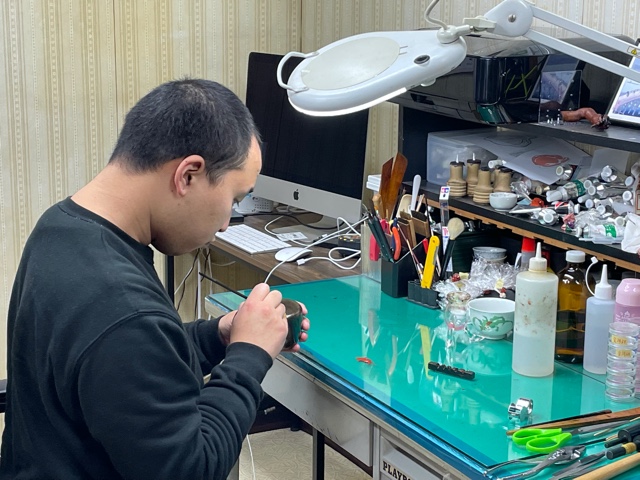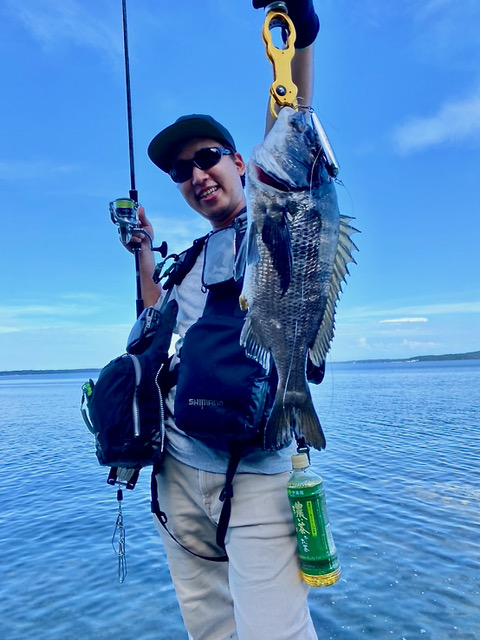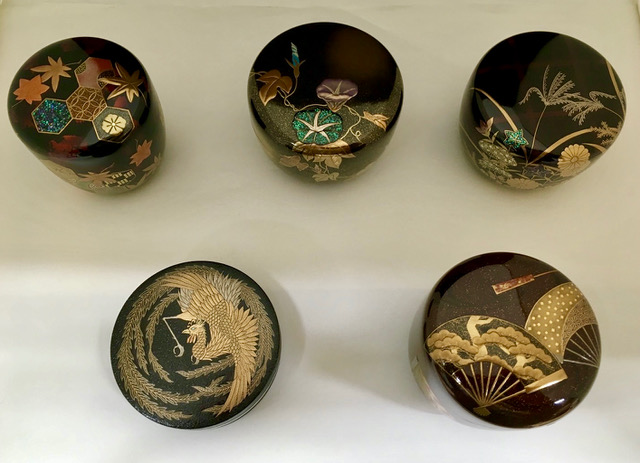MONTHLY LETTER
| 01 | 02 | 03 | 04 | 05 | 06 | 07 | 08 | 09 | 10 |
08
The TM JAPAN ART STUDIO:
The Family Business
Families, such as the Matsuyama family, that carry on traditions, one generation to the next, are increasingly rare. In today’s world of global commerce and, “the bottom line,” the heritage of work within a family therefore has a special value. Both in terms of the work’s quality itself and the preservation of family tradition, a family business maintains a history of its creators. With a family that creates art, the business has cultural value. That value is both preservation and moving forward. Kotaro Matsuyama, who, at the age of 33, is the oldest of Takeshi Matsuyama’s sons, recognizes that his task, even his mission, is to preserve tradition and to create new work within that context.Kotaro began his training as a makie craftsperson nine years ago: first, as an apprentice, and then four years ago as an independent artist. Though his hobby is fishing, he devotes most of his time to cultivating the ideas and observations that go into his artwork. His makie shows up on lacquerware and fountain pens, both practical as well as purely aesthetic.

Answer: As an apprentice for five years, I learned a lot, of course, from my teacher about skills and materials needed to do the work. When I became independent, I had to learn how to prepare everything by myself. Not just the material, but the business itself. I needed to learn for myself how to start and run a business! More broadly, I knew I wanted to be like my teacher; and, I recognized that that would take time.
A: Yes, all my work is created by me; I don’t have apprentices. My studio is next door to my father’s.

A: I’m simply aiming to satisfy customers, to create work that will make them happy. To do that, I make use of colors, for example, that appeal to me. Some of these colors derive from what I see in fish; as fishing is my hobby. I wouldn’t mind being a specialist of fish makie.
A: It depends, that’s right. Some take about two weeks, others much longer. The maximum is about three months.

A: I follow custom orders and create work independently of that, too. Fountain pen orders, for example, are a steady source.
A: I’ve been lucky. Without the help of my parents, I wouldn’t have been able to pursue a five-year apprenticeship. There was no income as an apprentice, and they supported me, I lived with them. It’s really not just taking over my father’s business: I love making makie. And the future is unseen.